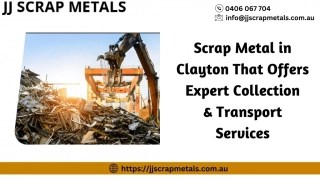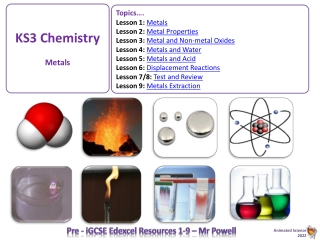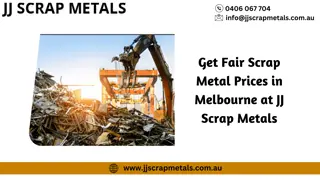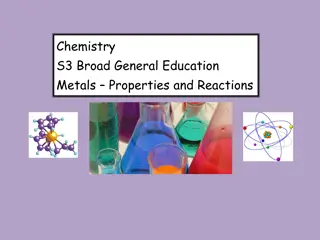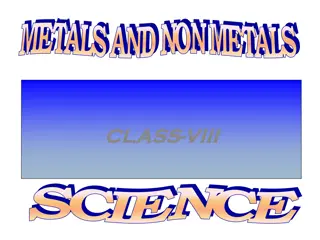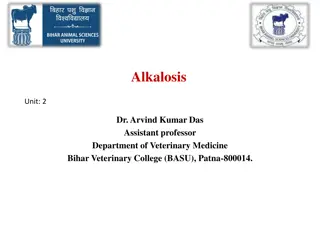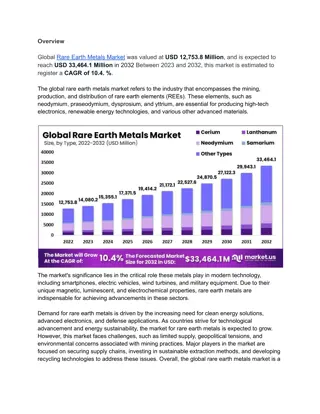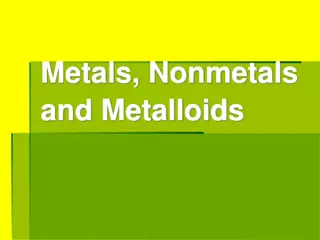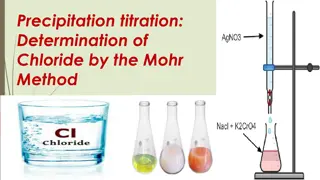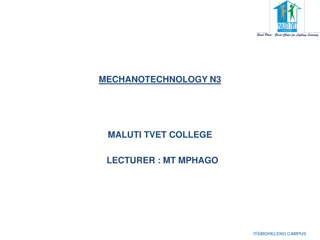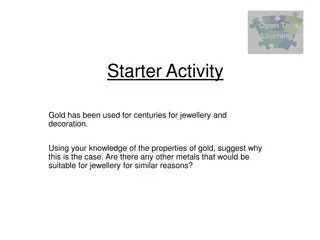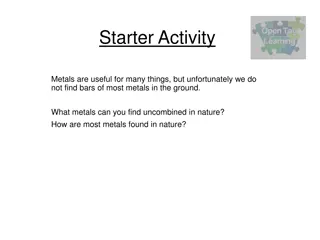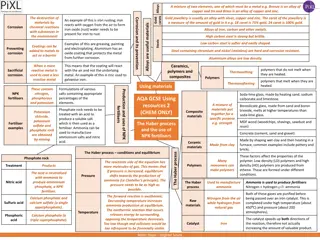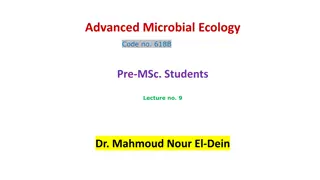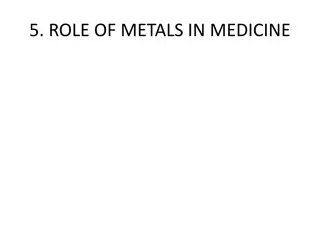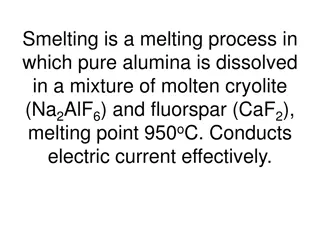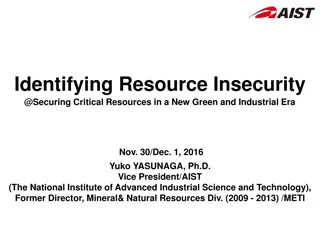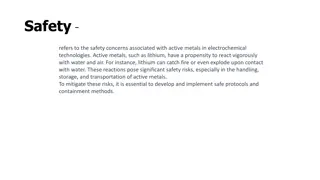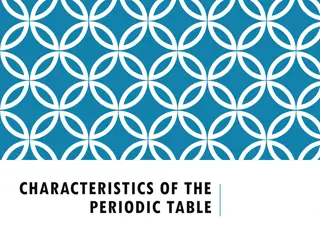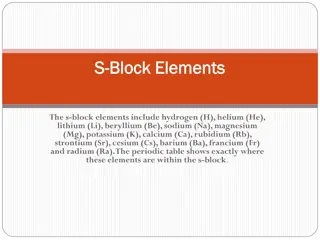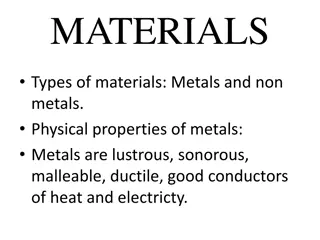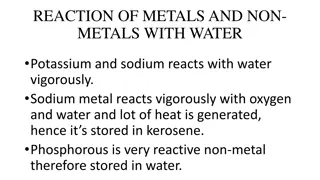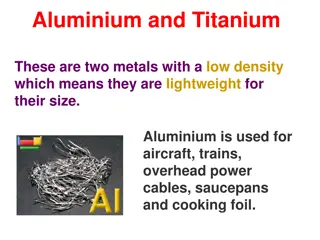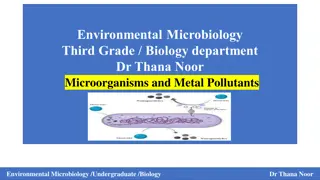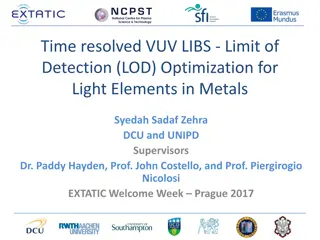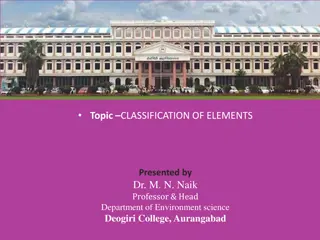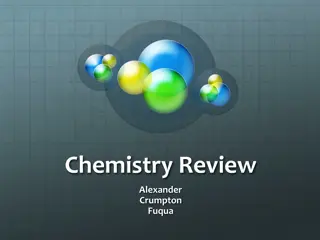SOLID COPPER EARTH ROD
Nexus Metal & Alloys is a leading manufacturer, exporter and supplier of Solid Copper Earth Rod, Solid Copper Bonded Rod, Solid Copper Earth Rod Lightning Protection Accessories, Pure Copper Bonded Rod, Electrolytic Copper Earth Rod, Solid copper rods, Solid Copper Earth Bars, Solid copper ground el
4 views • 3 slides
Scrap Metal in Clayton That Offers Expert Collection & Transport Services
JJ Scrap Metals, located in Clayton, offers professional scrap metal collection and transportation services. With a team of experts boasting extensive industry knowledge, we assure you of maximising returns for your metals. Our goal is to provide efficient and reliable services, making it convenient
5 views • 4 slides
Alkaline Water Ionizer Machine In India | Best Alkaline water Machine
\n \nAre you fed up with consuming bland tap water that fails to deliver the health benefits you crave? Ionia presents a solution to revolutionize your water-drinking experience with our alkaline water ionizer machine. Our cutting-edge device converts regular tap water into premium-quality, antioxid
4 views • 5 slides
Alkaline Water Ionizer Franchise | Water Ionizer Machine
Alkaline Water Ionizer Franchise\nAre you eager to dive into the flourishing health and wellness sector with a rewarding business venture? Look no further than Ionia, offering an enticing franchise opportunity within the thriving alkaline water market. As an Alkaline Water Ionizer Franchisee, we equ
0 views • 5 slides
Understanding Metals: Properties, Reactions & Extraction in Chemistry
Explore the fascinating world of metals through lessons on their properties, reactions with water and acids, displacement reactions, extraction processes, and more. Delve into key terms, such as ions and reactivity series, while discovering how metals interact with various substances. Engage with re
2 views • 77 slides
Organometallic Compounds of Group 2 Elements
In the realm of organometallic chemistry, Group 2 elements, specifically alkaline earth metals like beryllium and magnesium, exhibit intriguing properties and reactivities. The chemistry of these elements, mimicking that of Group 12 elements in many aspects, leads to the formation of various organom
5 views • 27 slides
Get Fair Scrap Metal Prices in Melbourne at JJ Scrap Metals
Scrap metal can negatively impact the environment if not managed properly, necessitating careful handling and recycling. \nAt JJ Scrap Metals, we have the expertise to recycle tons of used metals, including copper, aluminium, brass, lead, batteries, iron, wrecked cars, and vehicles. \nAs Melbourne's
1 views • 5 slides
Understanding Metals: Properties, Reactions, and Applications
Metals exhibit unique properties such as conductivity, metallic bonding, and reactivity with acids. They can be combined to form alloys with enhanced characteristics. This overview covers the properties, reactions, and utility of metals in various applications, providing insights into their behavior
2 views • 50 slides
Understanding Metals, Non-Metals, and Their Properties in the Periodic Table
Classification of elements into metals, non-metals, and metalloids based on their properties is essential. Metals are known for their conductivity and malleability, while non-metals have contrasting features like brittleness and poor conductivity. This detailed overview explores the physical propert
0 views • 31 slides
AQUAPLUS - Delivering Superior Alkaline Water Solutions in the UAE
AQUAPLUS is a leading water company in the UAE, providing refreshing alkaline water through a unique filtration process. They focus on quality control, automation, and BPA-free packaging to ensure safe and energizing water delivery. Discover the benefits of alkaline water for a healthier lifestyle.
0 views • 12 slides
Understanding Alkalosis in Cattle: Causes and Pathophysiology
Alkalosis in cattle, particularly ruminal alkalosis, can be caused by issues such as abomasal atony and alkaline indigestion. Excessive intake of protein-rich feed and changes in diet play a significant role. Pathophysiology involves the accumulation of ruminal ammonia, leading to alkaline pH and ru
1 views • 13 slides
Interactive GCSE Chemistry Lesson on Metals and Non-Metals
Engage in a dynamic one-hour lecture focusing on metals and non-metals in GCSE Chemistry. Discover the properties of metals and non-metals, understand the metallic bond, and explore the periodic table. Participate in tasks of varying difficulty levels, discuss statements related to metals and non-me
0 views • 17 slides
Rare Earth Metals Market Gains Momentum with Tech Advancements
Global Rare Earth Metals Market was valued at USD 12,753.8 Million, and is expected to reach USD 33,464.1 Million in 2032 Between 2023 and 2032, this market is estimated to register a CAGR of 10.4. %.\n\nDownload a sample report in MINUTES@\/\/market
0 views • 4 slides
Exploring the Conductivity of Metals in Electrical Circuits
This science fair project investigates how different metals affect the amount of current in an electrical circuit. It explores why metals are used to conduct electricity, which metal is the best conductor, and includes a hypothesis based on research findings. The experimental design involves setting
0 views • 15 slides
Understanding Metals, Nonmetals, and Metalloids in the Periodic Table
Explore the characteristics and physical properties of metals, nonmetals, and metalloids. Learn about the differences in appearance, conductive abilities, malleability, ductility, and other key features of these elements. Discover why metals are excellent conductors of heat and electricity, while no
0 views • 18 slides
Determination of Chloride by Mohr Method
Precipitation titration is a volumetric method used for determining chloride ions. Mohr's method involves reacting alkaline or alkaline earth chlorides with silver nitrate in the presence of a potassium chromate indicator. The endpoint of the titration is signaled by the appearance of red silver chr
0 views • 9 slides
Understanding Metals: Properties and Heat Treatment Processes
Metals can be categorized into ferrous and non-ferrous based on the presence of iron. Ferrous metals contain iron, while non-ferrous metals do not. Each type has distinct properties like toughness, tensile strength, elasticity, plasticity, ductility, malleability, and hardness. Heat treatment proces
0 views • 9 slides
Understanding the Properties of Metals in Everyday Life
Explore the use of metals in society, focusing on gold's suitability for jewellery due to its unreactive nature, ability to be polished and shaped. Discover terms like lustre, malleable, ductile, and thermal conductivity, essential for understanding metal properties. Engage in activities to define t
0 views • 14 slides
Metal Extraction: Processes and Applications
Metals play a crucial role in various industries, but their extraction from ores is a complex process. Some metals occur naturally in an uncombined form, indicating their low reactivity. Through heat alone, unreactive metals like lead can be separated from their ores. This extraction process involve
2 views • 16 slides
Unveiling Earth's Riches: Resources, Minerals, and Sustainability
Australia is known for its abundant natural resources, including coal, gas, minerals, and metals. However, the country faces challenges with water scarcity. The Earth's crust holds valuable resources essential for everyday items and fuels. Understanding the importance of using resources wisely for a
0 views • 16 slides
Understanding Alloys and Corrosion in Metals
Alloys are mixtures of elements, with one being a metal, like bronze and brass. Gold jewelry is often alloyed with metals like silver and copper. Corrosion, the deterioration of materials through chemical reactions, can be prevented by using protective coatings. Different types of steels and aluminu
0 views • 4 slides
Understanding Alkali and Alkaline Earth Metals in the Periodic Table
Explore the unique characteristics and behaviors of alkali and alkaline earth metals in the periodic table. Learn about the reactivity, storage, manufacturing, and general properties of these essential elements. Dive into the world of Group 1 and Group 2 elements to understand their role in chemical
0 views • 21 slides
Types of Metals and Alloys Used in Construction
Various metals and alloys play crucial roles in construction, from bronze and copper to stainless steel and galvanized steel. Each material has unique properties and applications, such as bronze's malleability, copper's versatility, and stainless steel's resistance to oxidation. Understanding the ch
0 views • 73 slides
Understanding Heavy Metals and Their Impact on Organisms in the Environment
Heavy metals, such as zinc and copper, persist in the environment posing health risks to organisms. Industrial activities release toxic metals into water sources. Microorganisms can interact with heavy metal ions, altering their toxicity and resistance. Essential heavy metals are needed in small amo
0 views • 24 slides
Exploring the Vital Role of Metals in Modern Medicine
An in-depth look at the diverse roles metals play in contemporary medicine, from bio-essential functions to the development of metal-based drugs. Discover how metals like iron, lithium, and auranofin are utilized for medicinal purposes, alongside their applications in non-invasive radiopharmaceutica
0 views • 155 slides
Metal Smelting and Electrorefining Techniques Explained
Smelting is a process involving the dissolution of pure alumina in a molten mixture of cryolite and fluorspar to extract metals like aluminum. Electrolysis is used to separate the metals where oxygen is liberated at the anode and the metal is deposited at the cathode. This process is illustrated wit
0 views • 29 slides
Challenges in Ensuring Critical Mineral Supply for Japan's Sustainable Industrial Activities
Japan faces challenges in securing critical minerals for sustainable industrial activities due to market failures in rare metals trade, lack of information symmetry in supply chains, and the small market size of rare metals. The Government of Japan implements policy measures such as overseas resourc
0 views • 15 slides
Challenges and Impacts of Active Metals in Electrochemical Technologies
Safety concerns arise from the reactivity of active metals like lithium, leading to fire and explosion risks. Economic challenges include high costs and limited availability of these metals. Environmental aspects highlight pollution risks from improper disposal. Images and descriptions illustrate th
0 views • 7 slides
Characteristics and Families of the Periodic Table: A Comprehensive Overview
Explore the characteristics of the periodic table including the alkali metals, alkaline earth metals, transition metals, lanthanides, actinides, and more. Learn about the properties, valence electrons, and uses of different groups, such as the boron group, carbon group, nitrogen group, oxygen group,
0 views • 8 slides
Understanding S-Block Elements in the Periodic Table
The s-block elements in the Periodic Table consist of 14 elements with unique properties and characteristics. Lithium, sodium, and potassium are notable members of Group 1, characterized by their reactivity and ability to form alkaline solutions when in contact with water. These soft metals exhibit
0 views • 23 slides
Understanding Metallic Bonding and Its Properties
Metallic bonding involves the delocalization of electrons among metal atoms, creating a unique structure known as the electron sea. This structure allows for properties such as high melting points, conductivity of heat and electricity, malleability, and ductility. Metals are able to conduct heat and
0 views • 12 slides
Physical and Chemical Properties of Metals and Non-metals
Metals exhibit physical properties like lustrous appearance, ductility, malleability, and sound production. They are also good conductors of heat and electricity. Non-metals, on the other hand, are brittle, non-sonorous, and poor conductors of heat and electricity. The chemical properties include re
0 views • 13 slides
Reactivity of Metals and Non-Metals: A Comprehensive Overview
Metals like potassium and sodium react vigorously with water, while non-metals like phosphorus are highly reactive and stored in water. Metals react with acids to form hydrogen gas, while non-metals generally do not react with acids. Reactivity series explains displacement reactions where more react
0 views • 11 slides
Lightweight and Corrosion-Resistant Metals: Aluminium and Titanium
Two metals, Aluminium and Titanium, known for their low density and resistance to corrosion, are essential in various industries. Their extraction processes are expensive due to energy requirements and multiple stages involved. Aluminium is extracted from bauxite using the Bayer process, while Titan
0 views • 9 slides
The Role of Microorganisms in Mitigating Heavy Metal Pollution
Metal pollution poses health and ecological risks globally, with heavy metals like mercury and lead causing various harmful conditions. Microorganisms play a crucial role in altering the bioavailability and toxicity of metals. By converting elemental mercury to methylmercury and affecting the valenc
0 views • 9 slides
Herbal Green Food Plus | Leafoflifeherbs.com
Searching for alkaline herbal vegetarian capsules? Leafoflifeherbs.com provides herbal green food plus and blood pressure reducer alkaline herbal capsules at affordable prices. Visit our site for more info.
3 views • 1 slides
Optimizing LOD in Time-Resolved VUV LIBS for Light Elements in Metals
Laser-Induced Breakdown Spectroscopy (LIBS) is a powerful analytical method used to detect elemental composition in various states. This research focuses on optimizing the Limit of Detection (LOD) for Time-Resolved Vacuum Ultraviolet (VUV) LIBS, particularly for light elements in metals. The study a
0 views • 35 slides
Understanding the Classification of Elements in the Periodic Table
In 1869, Mendeleev and Lothar Meyer published classification schemes for elements, leading to the development of the Periodic Table. This table organizes elements based on properties and reactivities, with each element having a unique atomic number. There are 92 naturally occurring and 13 man-made e
0 views • 31 slides
Understanding Alkali Metals: Group 1 Elements
Alkali metals, found in Group 1 of the Periodic Table, include elements like lithium, sodium, and potassium. These metals are highly reactive, with properties that change as you move down the group. They have low densities and melting points, and their reactivity increases from top to bottom. Learn
0 views • 12 slides
Chemistry Fundamentals: Elements, Mixtures, Metals, and Changes
Explore fundamental concepts in chemistry including elements found on the periodic table, types of mixtures, characteristics of metals and non-metals, periodic table groups, chemical vs. physical properties, and changes in matter. Learn about the properties and behaviors of elements, compounds, and
0 views • 12 slides

